Climate emergency: Who you gonna call?
- Published
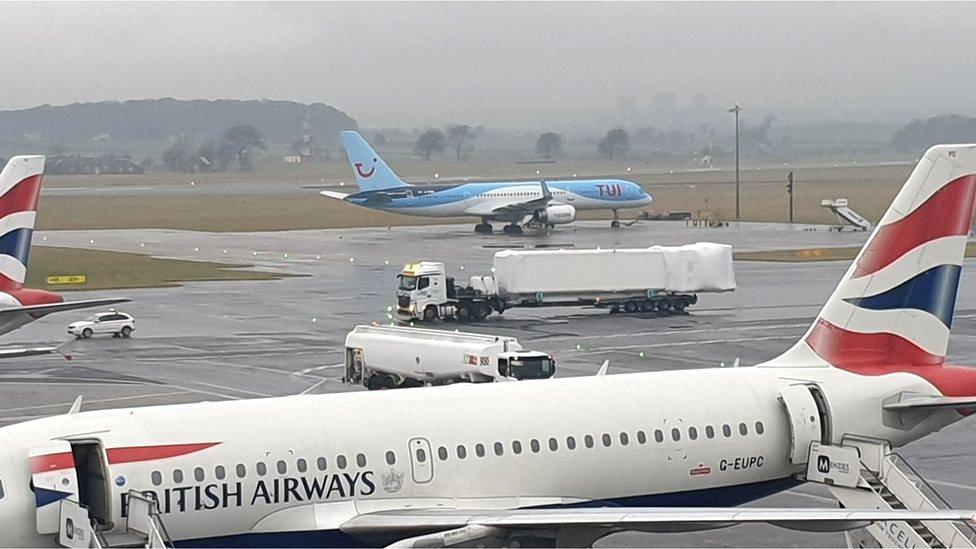
A state of emergency has been declared, it won't end quickly, but its implications are far from clear.
The U-turn on cutting Scotland's air passenger tax is an early example of many more difficult choices ahead.
The effect on road-building could be profound, and more so for the oil and gas industry.
What is an emergency? When you're in government, I mean. Is it a time when extra resources are mobilised, from contingency funds? The national guard mobilised and police leave is cancelled? When laws are suspended? Martial law and a curfew imposed?
We need to find out, because an emergency has been declared - a "Climate Emergency".
This is not to ridicule the importance of the issue, nor the pressure from street protesters to cut net climate changing emissions to zero within only six years, nor the declarations of emergency by national leaders and parliaments. It is a serious question of how much this one issue trumps every other priority, or even legal safeguard.
While emergencies caused by exceptional weather events are stood down after a while, this doesn't look like the kind of crisis that can readily be declared as solved and over. Not for a half century or so, at best. We'd better get used to it.
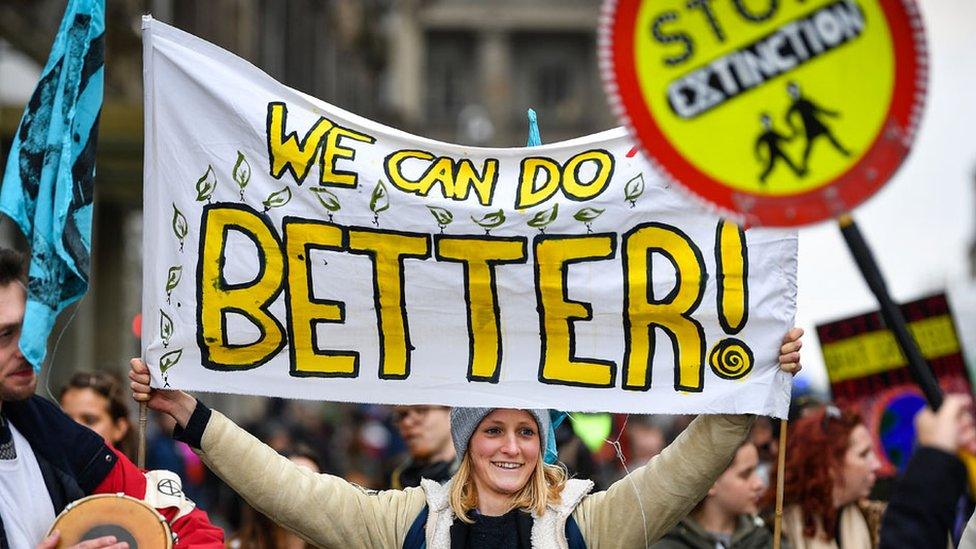
Climate change campaigners have staged protests in Edinburgh
We're beginning to see the consequences, this week on a relatively small issue. The SNP manifesto promise of cutting air departure tax (or air passenger duty, as it is at Westminster) in half, and then removing it "when resources allow" is being ditched.
It had run into technical, legal problems over the devolution of an exemption on Highlands and Islands flights, given by the European Commission to the UK government.
It was enacted in law, but implementation delayed. Taxation experts had not given up the concerns they voiced during the legislative phase about its practical application.
The tax cut was stalled by the arithmetic at Holyrood. The SNP needs support to get policy past combined opposition, and it's got a special problem if it continues to rely on Scottish Green votes to pass its budgets. They surely won't vote for a tax cut intended to boost air travel numbers.
That's because of the factor that proved decisive for Scottish ministers - the promise to cut air departure tax clashed too loudly with the newly raised status of environmental considerations, under the Climate Emergency. The tension in SNP policy has been there for some time. The new status made it a clear contradiction, and forced its resolution into the open.
Lifeline routes
The U-turn leaves a lot of questions. Whereas the tax was introduced to force air passengers to pay at least some of the external costs imposed by their travel, it had become a cash cow for the Westminster and now (with newly devolved powers) the Holyrood governments.
Now, there's a third justification. The tax is being retained as a constraint on the growth of aviation. That may be a laudable aim if your primary concern is global warming. But if that is now the policy, what else must be done to constrain aviation? Is that now in play when airports plan further expansion of terminal facilities? Should air departure tax be raised? Is this the best way of constraining aviation, or merely the means that's evolved? Is it, for instance, fair? Does the tax use the right, arbitrary definitions of short and long-haul, and of economy class and the posh seats? In both cases, it makes a lot of difference.
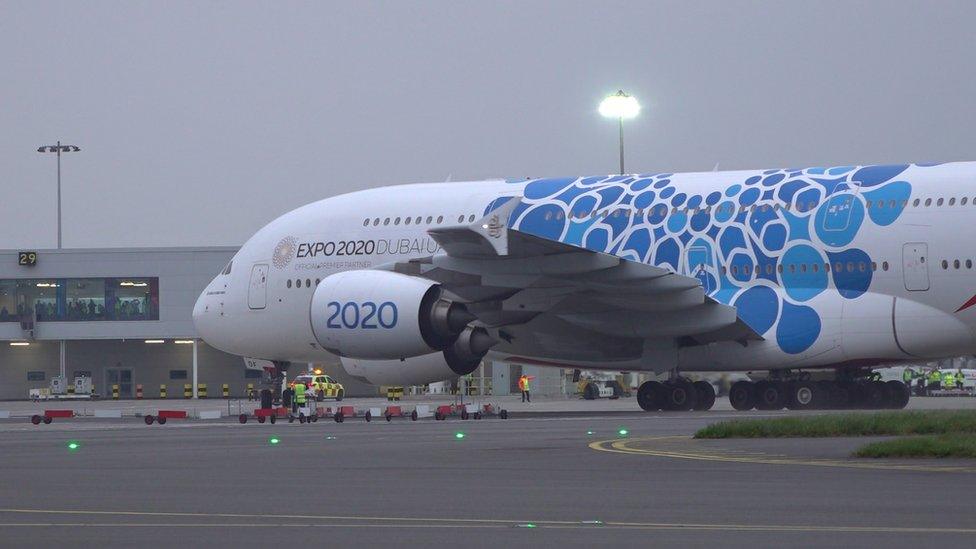
If it's really an emergency, how can zero rating of the departure tax be justified in the Highlands and Islands? Could there be better ways of targeting funds at lifeline services for islands rather than adding in every flight that takes off from Inverness?
And how can the Scottish government keep Prestwick Airport operating with a subsidy of £10m per year? The intention is to find a route to returning it to commercial viability. That can only be done with more flights. And if, instead of generating more traffic, it aims to divert flights from other Scottish airports, then it's a state subsidy being used to undermine the commercial operations in Glasgow and Edinburgh. That would not be a clever place for the Scottish government to be.
Road ahead
Next week, we're due to get more detail on the review of policy in light of the Climate Emergency being declared. There will be a statement from Roseanna Cunningham, the Scottish environment secretary. Maybe she can answer some of these questions.
She will make the case for opposition MSPs to support new powers for councils to introduce low emission zones, which means barring the dirtier type of vehicle, and workplace parking levies. (A declaration of interest here: I stand to be hit by both, but make no complaints.)
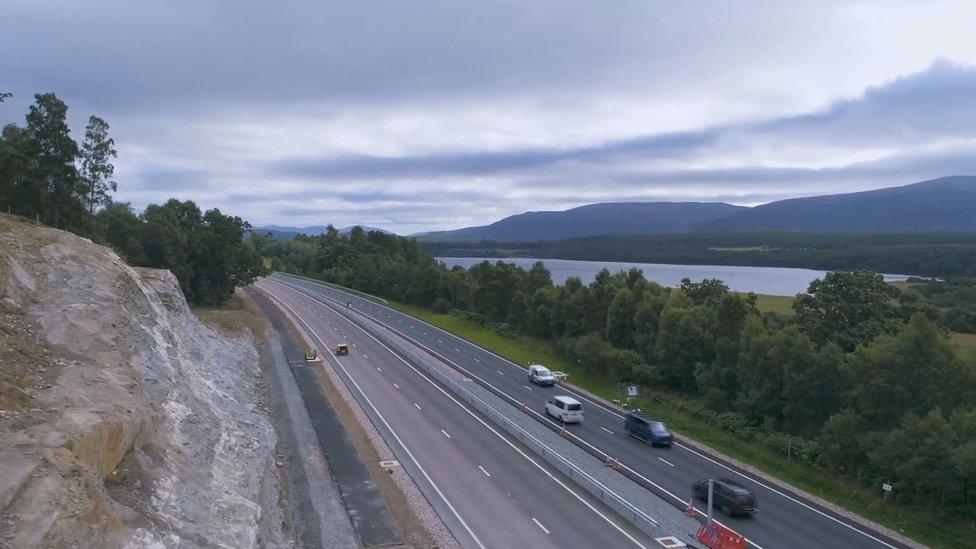
The A9 project is due to be completed in 2025
Ms Cunningham can also expect to be asked about transport spending priorities. Campaigners for public transport say too much has been directed towards road-building. Having poured resource into the M80 and M8 through North Lanarkshire, the M74 through South Lanarkshire and Glasgow, It continues with billions being poured in aggregate and asphalt to improve the capacity of the A9 between Perth and Inverness, and the A96 between Inverness and Aberdeen.
There are plenty of road projects that could use funding. Edinburgh's ring road is struggling to cope with peak periods, for instance. The West Highlands deserve a better A82 along Loch Lomond, and the A75 between Dumfries and Stranraer is far from ideal for servicing Northern Ireland.
The case was made in Glasgow last week for such spending to come back into cities, to make internal public transport work better and for more marginal communities. So what does a Climate Emergency mean for those capital spending priorities?
Drill bit
What about oil and gas? The international campaign to "Keep it in the Ground" has gained traction by putting pressure on lenders and investors. Big funds, such as university endowments, have shifted portfolios away from fossil fuels. The giant Norwegian oil fund, representing 2% of world stock markets, recently did likewise. While derived from the tax and profits on North Sea oil and gas, its trustees believe it had become over-exposed.
What about Scotland? Holyrood does not have the powers to pull back on exploration or production licences in Scottish waters. These powers are located at Westminster, and exercised through the Oil and Gas Authority.
But environment campaigners want to see oil and gas addressed as part of this Climate Emergency. They want to see, at least, that the SNP is backing their cause, and pushing the Westminster government to draw back on its current policy of "maximising economic recovery" from UK waters.
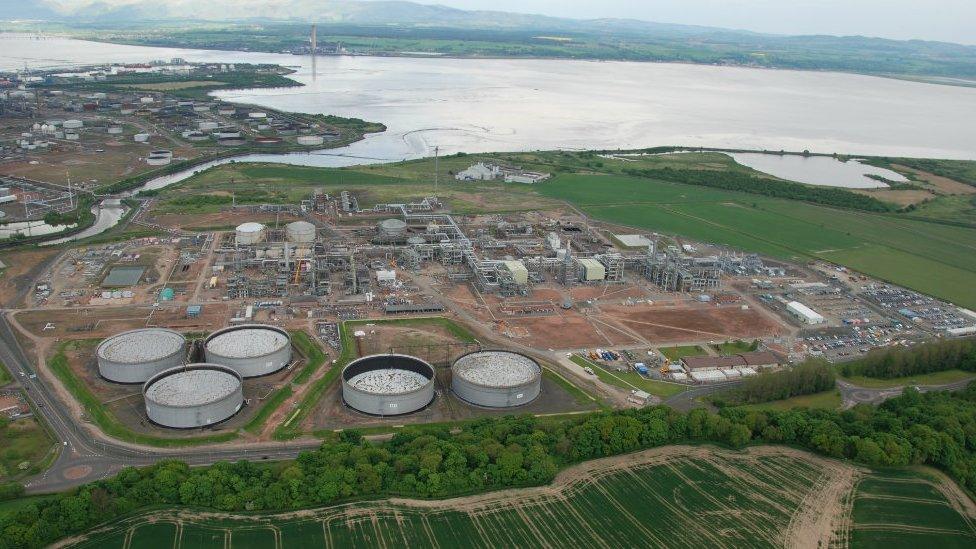
Oil from the Seagull development will be exported via the Forties Pipeline System to the Kinneil Terminal, Grangemouth
As a sign that it gets the point, the Scottish government can point to its moratorium on allowing planning permission to be granted for fracking.
But that has riled companies such as Ineos, which operate Grangemouth, pipelines and several of the offshore installations which are vital to the Scottish economy. Such decisions are taken as signals by the private sector and to investors. The air tax U-turn will too.
They can see that the priority given to economic growth - assuming ever-increasing prosperity and use of resources, on household and business items such as transport fuel - is in tension with the new Climate Emergency.
Meltdown
In an ideal world, the jobs created by a mighty green transition would replace those lost in oil and gas, or in aviation. But in the real world, there will be dislocation, destruction of some parts of the economy, and some personal and political pain can be expected. Transition cannot be cost-free.
The clash over air departure tax is already out in the open. The Scottish Chambers of Commerce fear the Scottish government's eagerness to be an international leader on green policy will "cut off Scotland's economy at the knees".
Edinburgh Airport is furious that it was being told by a minister, only two weeks ago, that it could go ahead in talks with Ryanair on the basis that Scottish government policy on cutting the air duty remained its intention.
The capital's airport has been successful in attracting new airlines and routes, and adding a lot more passengers. That is despite having the high tax in place.
But prominent in the sales pitch to expand connectivity was the pledge that air departure tax cut had clearance from ministers for take-off. It would, itself, be making a departure.
The numbers will now have to be re-run. Low-cost, long-haul carrier Norwegian has already pulled out of three transatlantic routes for Edinburgh. If the numbers don't stack up any longer, others can be expected to stay grounded.
With such trade-offs, the big question is how big a compromise of economic growth is the Climate Emergency going to require? It is a question for every government that has signed up to tackle climate change.
Ominously for the state of the planet, on the day Holyrood was facing up to one, relatively small but difficult decision, the Trump administration denied the problem and defied a consensus of other members of the Arctic Council on tackling the crisis which is already becoming evident as the polar ice-cap recedes.